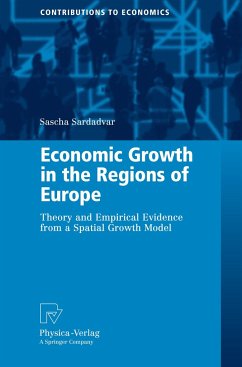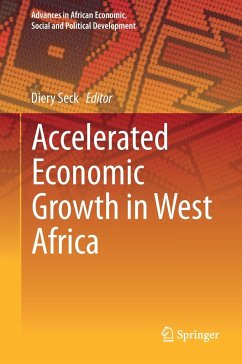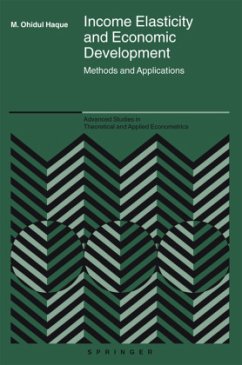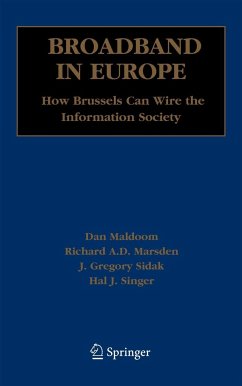
The New Economy and Economic Growth in Europe and the US
Versandkostenfrei!
Versandfertig in 1-2 Wochen
77,99 €
inkl. MwSt.

PAYBACK Punkte
39 °P sammeln!
The strong productivity growth of the US and Scandinavian countries in Europe in the 1990s has raised the question whether the ICT sector - information and com munication technology (that is computers plus telecommunications plus digital services)-is the new driving engine of high growth in leading OECD countries. Judging by the empirical evidence for the US, including a new study by McKinsey which gives mixed evidence, it is still too early to clearly dismiss Robert G. Gordon's hypothesis that the acceleration of US output growth is (dis regarding quality problems of price measurement) exclus...
The strong productivity growth of the US and Scandinavian countries in Europe in the 1990s has raised the question whether the ICT sector - information and com munication technology (that is computers plus telecommunications plus digital services)-is the new driving engine of high growth in leading OECD countries. Judging by the empirical evidence for the US, including a new study by McKinsey which gives mixed evidence, it is still too early to clearly dismiss Robert G. Gordon's hypothesis that the acceleration of US output growth is (dis regarding quality problems of price measurement) exclusively due to cyclical factors and increased productivity growth in the computer sector. The counter hypothesis is associated with research by Stiroh and others who argue that there are positive productivity spillover effects from ICT to other sectors. Indeed, it is not clear ex ante whether mainly the Old Economy or the so-called New Economy stands to benefit most from high innovation rates and strong productivity shifts associated with the spreading of digital services. Interestingly, the increased eco nomic role of the internet also contributes to the internationalization of the econ omy since more services have become tradable, and growing import competition itself could stimulate productivity growth and thus contribute to higher growth. If ICT plays a key role in the new economy, there are important implications in the differential degree to which Germany and the US have implemented ICT.














